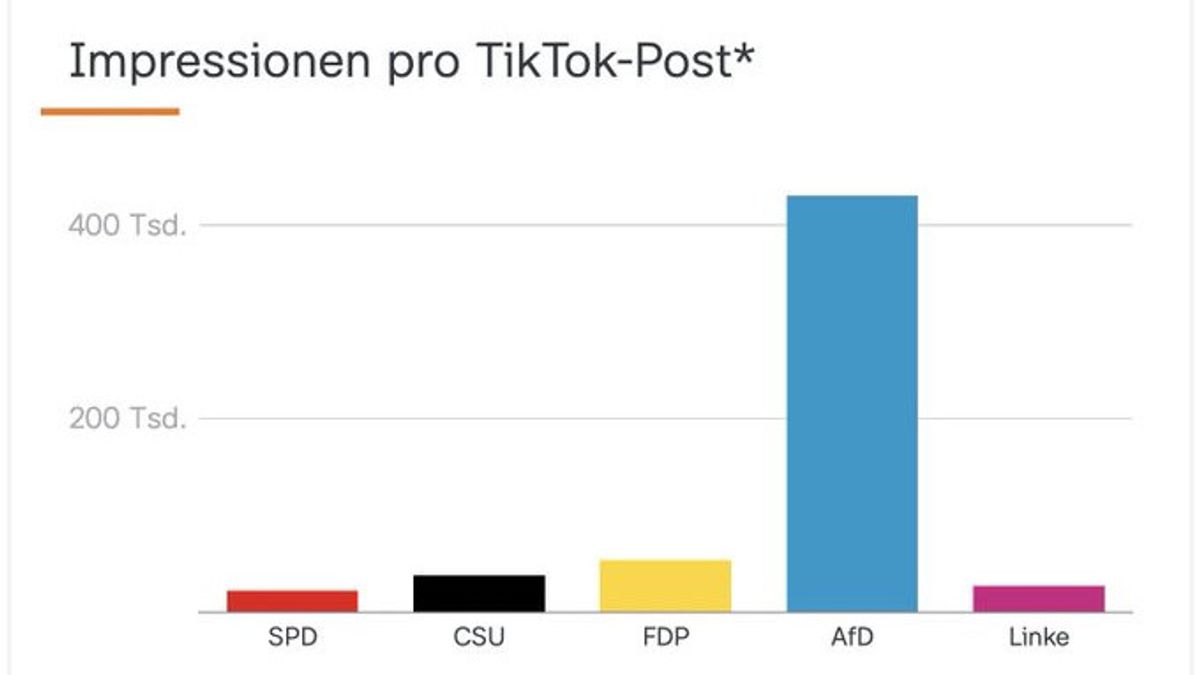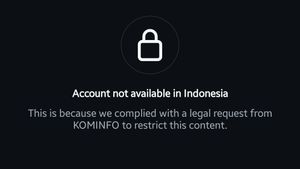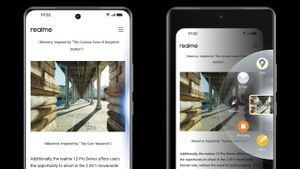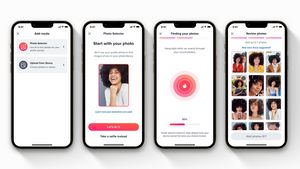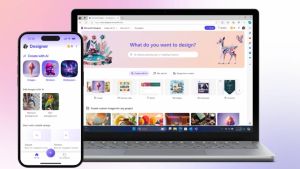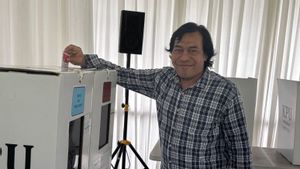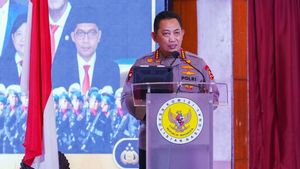JAKARTA - TikTok is accused of helping promote Germany's extreme right political party to young voters ahead of last month's EU elections, although they are looking for the app for other parties or politicians. This was revealed according to a new report distributed exclusively at WIRED.
The report was written by researchers from the nonprofit organization AI Forensics and Interface, a European think tank specializing in information technology. Researchers found that in a quarter of cases, young users in Germany were looking for applications to certain political parties and their politicians in the weeks leading up to elections on June 5 were instead advised for other parties. In most of these cases, they were given advice related to Alternative f\"ur Deutschland (AfD), Germany's leading right-handed extreme party.
It has been widely documented that AfD managed to leverage TikTok to spread extremism and disinformation to younger audiences, but the new research shows that the extreme right group, labeled extremist'' by the German court earlier this year, was assisted by the TikTok algorithm itself.
TikTok, which was given a copy of the final report before publication, did not deny the findings of the study but said that they, in the past, had made some accounts linked to AfD not eligible for search recommendations due to content breaches.
Research Context
According to Martin Degeling from Interface, when users search for a Green party or CDU, AfD often appears as the recommended search result. However, when users search for AfD, no other party appears. This shows an algorithmic aspect where one makes the decision to connect the search.
Miazia Sch\"uler of AI Forensics added that TikTok's built-in features, such as the advice of Others Searched For provide a less moderation space where extreme rights, especially AfD, can take advantage of them. Salvatore Romano, head of research at AI Forensics, also noted that further research in other countries such as France, Poland, and Italy found similar problematic content displayed across the country.
TikTok claims to have implemented state-specific tools to combat the spread of misinformation during the EU elections, including linking people to reliable information through their Election Center, which received more than 7.5 million visits before the EU elections.
Additional Findings
The researchers also found that in a third of the search, users were given suggestions for a collaborative and sensational search that had nothing to do with the terms they were looking for. For example, when searching for content related to the Green party, search suggestions include "Habeck's wife left," although there was no truth in the claim and no related videos on TikTok.
SEE ALSO:
Research shows that although users don't click on one of the search suggestions in the app, only looking at the suggestion is enough to make the term stick in people's brains. The more extreme the suggestion, the more likely people will remember it.
In a previous study, Interface and AI Forensics found that users presented with a series of search suggestions choose the most suggestive titles available for click. For example, a fake title "Olaf Scholz Caught in Club" is the most memorable fake title of anyone, although there are no related incidents and no corresponding videos on TikTok.
Research shows that search functions on TikTok are becoming an increasingly important way for users, especially young users, to find content in the app. TikTok says that many factors contribute to whether search terms are recommended, including comments and public searches conducted after watching videos.
The researchers also found that TikTok had taken several steps to limit the spread of inaccurate search results or provoking certain parties or politicians, but moderation efforts were not consistently implemented across platforms.
The English, Chinese, Japanese, Arabic, and French versions are automatically generated by the AI. So there may still be inaccuracies in translating, please always see Indonesian as our main language. (system supported by DigitalSiber.id)
